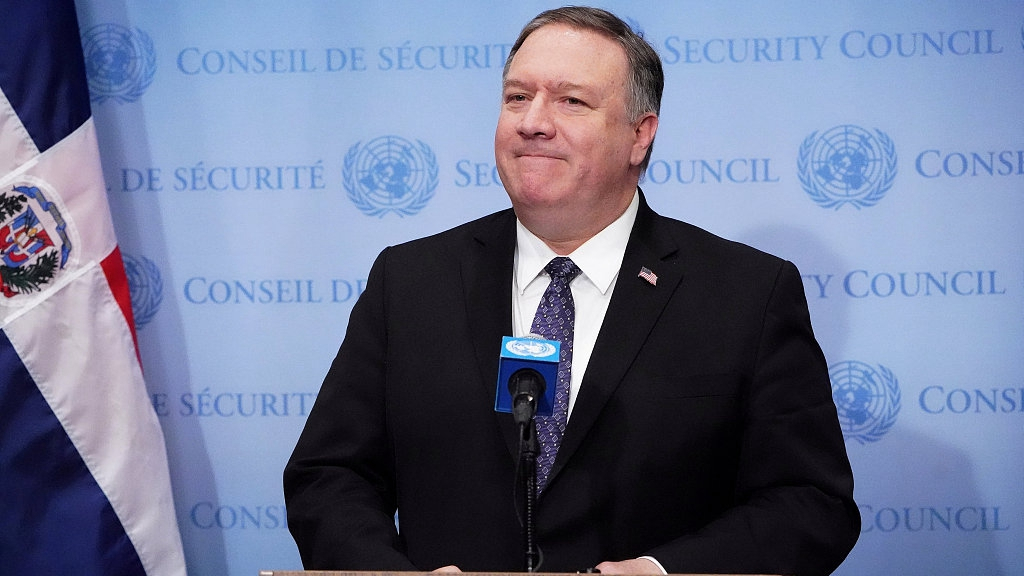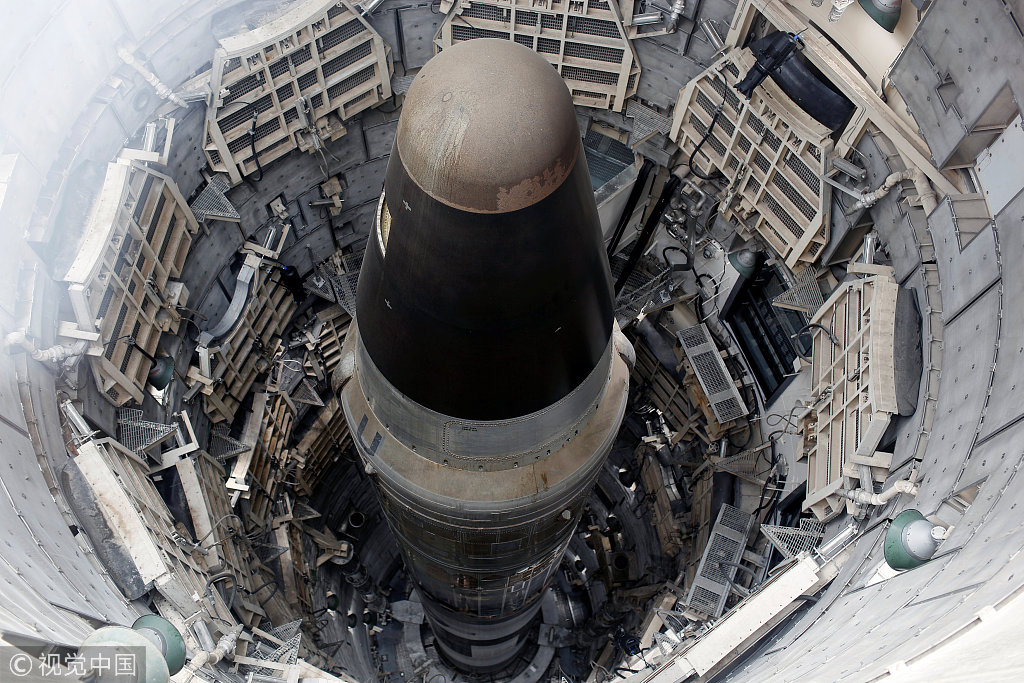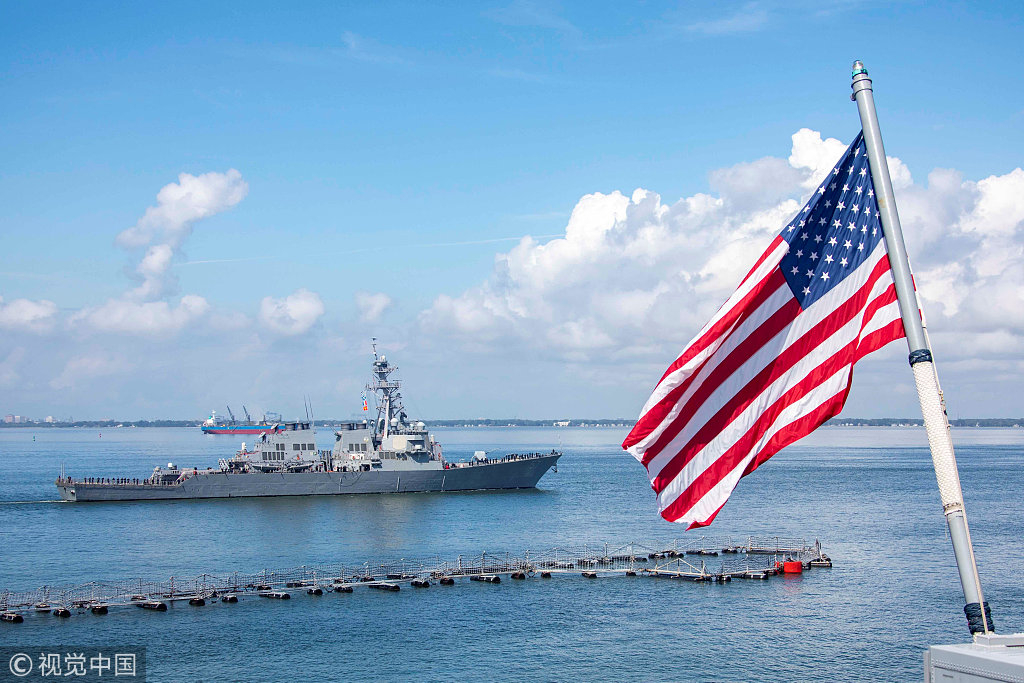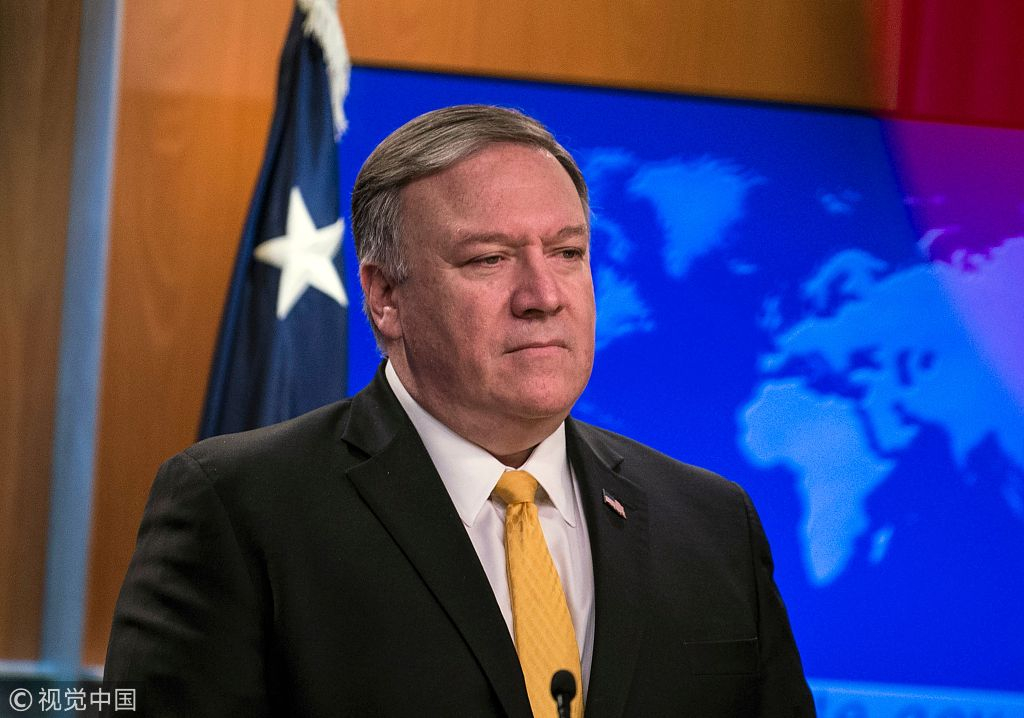
Opinion
10:15, 03-Feb-2019
U.S.' INF Treaty withdrawal makes no sense for its military advantage
Updated
11:13, 03-Feb-2019
Kang Jie

Editor's note: Kang Jie is an assistant research fellow at the China Institute of International Studies. The article reflects the author's opinion, and not necessarily the views of CGTN.
After several rounds of futile negotiations with its Russian counterpart, the Trump administration has given death sentence with a 6-months reprieve to the 30 years old INF treaty.
According to the announcement, United States has suspended its obligations under the treaty from February 2, 2019, and will formally withdraw from it unless Russia “comes into verifiable and enforceable compliance” in the next 180 days.
Several years of mutual accusations on treaty violation between the White House and Kremlin, which have been regarded as another soap opera, may come to an end.
As many analysts have pointed out, one of the main motivations behind the U.S.'s withdrawal from the INF treaty is to (re)develop and redeploy intermediate-range missiles like IRBM and land-based cruise missile, which has been prohibited by the treaty, in the Asia-Pacific region.
According to some U.S. defense experts, the redeployment will increase the strategic options for the U.S. military, relieve the scarcity of conventional strategic strike assets, and enhance the effectiveness to counter so-called “China missile threats.”

The Titan Missile at the Titan Missile Museum in Sahuarita, Arizona, U.S., February 2, 2019. /VCG Photo
The Titan Missile at the Titan Missile Museum in Sahuarita, Arizona, U.S., February 2, 2019. /VCG Photo
I have recently pointed out the domestic budgetary and bureaucratic constraints on Washington's intermediate-range missile ambitions.
Nonetheless, even if the U.S. can eventually break through these constraints, managing to develop and purchase intermediate-range missile, it will be even harder for them to find a host for those missiles in the Asia-Pacific region.
Frankly, most of the U.S.'s regional allies and security partners, such as Japan and South Korea, are highly urbanized and densely populated, suggesting that missiles are difficult to deploy away from cities and other residential areas.
The deployment of offensive weapon like intermediate-range missiles will not only contribute little to the security of the host country but dramatically increase the risk of its inadvertent involvement in the Sino-U.S. conflict.
Besides, a deduction which all of U.S.'s Asia-Pacific allies can unmistakably draw out is that accepting the U.S.'s intermediate-range missiles is tantamount to announcing a full-scale confrontation with China.

The U.S. Navy Arleigh Burke-class guided-missile destroyer USS Mitscher departs Naval Station Norfolk ahead of Hurricane Florence in Norfolk, Virginia, U.S. September 10, 2018. /VCG Photo
The U.S. Navy Arleigh Burke-class guided-missile destroyer USS Mitscher departs Naval Station Norfolk ahead of Hurricane Florence in Norfolk, Virginia, U.S. September 10, 2018. /VCG Photo
The relationship between China and its East Asian neighbors are entirely different from those of Russia with Eastern European countries such as Poland, which has shown some intentions to accept U.S. intermediate-range missiles.
China and its neighbors share deep and multi-layered interdependence, which makes the latter more hesitant on serving U.S.'s interests at the risk of infuriating China. Decision-makers in those countries also cannot bypass the pressures of their domestic pacifist public opinion.
In addition, in the operational and tactical dimension, Japan, South Korea and other East Asian countries lack strategic depth and are not suitable for the deployment of intermediate-range missiles.
Furthermore, the White House may eventually find that they have no alternative to implement their military deployment other than Guam. However, the strategic and tactical value of intermediate-range missiles in Guam can be limited.
Although land-based intermediate-range missiles in Guam may add a useful option in U.S.'s power projection operations, it cannot play as a “game changer” to reverse the decline of U.S. military advantage in the region.

US Secretary of State Mike Pompeo speaks at a press briefing in the State Department in Washington, DC, on February 1, 2019. /VCG Photo
US Secretary of State Mike Pompeo speaks at a press briefing in the State Department in Washington, DC, on February 1, 2019. /VCG Photo
In the tactical dimension, the intermediate-range missile overlaps with other existing U.S. air and sea strike capabilities. Despite that someone claims it may have a cost advantage, it has no significant tactical advantage.
In sum, withdrawing from the treaty does not help maintain U.S.'s military advantage in East Asia while seriously undermine the global and regional strategic stability and open the Pandora's Box of the arms race in Europe.
Given to its unfavorable position in the missile develop competition with Russia, the withdrawal game is not worth the candle.
(If you want to contribute and have specific expertise, please contact us at opinions@cgtn.com.)

SITEMAP
Copyright © 2018 CGTN. Beijing ICP prepared NO.16065310-3
Copyright © 2018 CGTN. Beijing ICP prepared NO.16065310-3